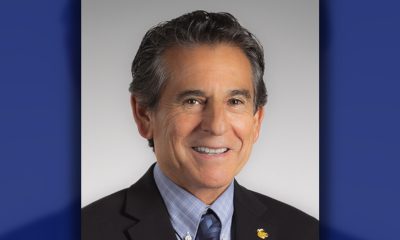COVID-19
Oakland City Council’s Equity Caucus Allocate $2m for Health, Economic, and Food Access Disparities
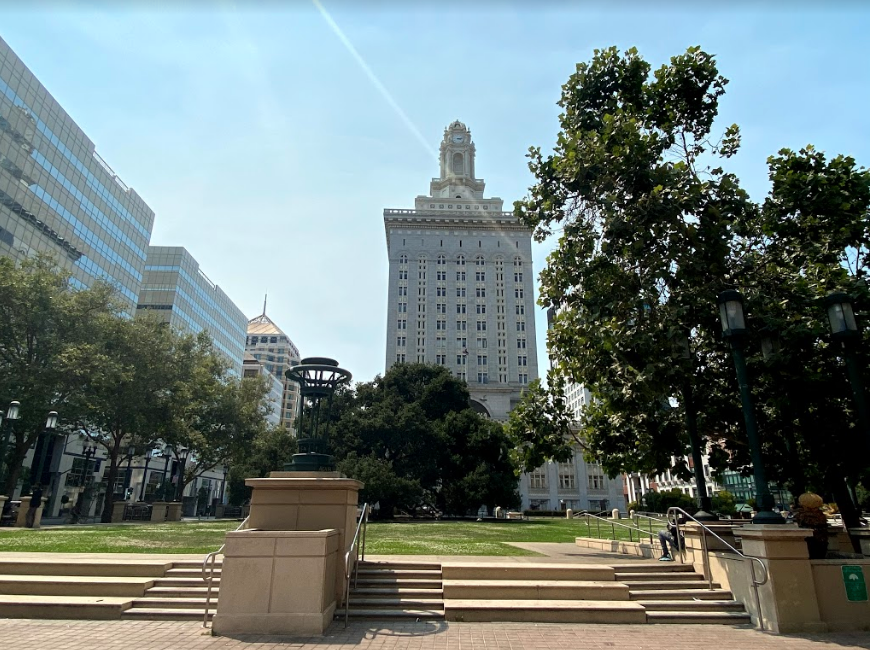
Oakland City Council adopted a Fiscal Year 20-21 midcycle budget Tuesday with amendments that included CARES Act funding allocations to provide critical resources to residents and businesses for Coronavirus Aid, Relief, and Economic Security (CARES) Act funding to community-based organizations that serve Oakland’s most vulnerable Black and Latinx residents living in the East and West Oakland flatlands.
The legislation was led by Loren Taylor and co-authored with Vice-Mayor Larry Reid, Councilmembers Noel Gallo and Lynette Gibson McElhaney. The Resolution was unanimously passed by the Council.
On June 23, 2020, the City Council adopted a Fiscal Year 20-21 midcycle budget with amendments that included CARES Act funding allocations to provide critical resources to residents and businesses.
The City Council granted $500,000 to the Oakland Frontline Healers to address health disparities in the most affected communities in Oakland. The Oakland Frontline Healers is a collaboration of 30 large non-profits and volunteer organizations that have been working together to address COVID-19 vulnerabilities in the Black Community, from food delivery to case management and shelter stays.
In order to address food insecurity and entrepreneurship, $150,000 was allocated to the City’s Digital Arts and Culinary Academy (DACA) to bring the existing commercial kitchen in compliance with COVID-19 requirements as well as other state and local standards. The upgrades will provide space for food entrepreneurs to reduce the cost of serving our community and provide nutrition classes. In addition, to address the inadequate access to low-cost healthy foods, the Black Cultural Zone was granted $150,000 to establish an ongoing Farmer’s Market in East Oakland.
In recognition of the need for business and technical assistance, $700,000 was granted to each of 7 organizations that work with our traditionally harder to reach and least capitalized businesses. Organizations include the Oakland African American Chamber of Commerce, Latino Chamber of Commerce, Chinatown Chamber of Commerce, Vietnamese Chamber of Commerce, Unity Council, East Oakland Entrepreneurial Forum, and OCCUR.
To address the high unemployment rates that have dramatically increased in the wake of COVID-19, the caucus invested in innovative workforce development programs. $500,000 of those workforce development funds were granted to The Brothers & Sisters BarberCosmo Academy. The academy program provides affordable barbering and cosmetology training to unemployed, under-employed, and formerly incarcerated Oakland residents. With the ultimate goal of students either working in a salon or owning their own business, BSBCA teaches hard and soft skills of barbering and running a business. BSBCA will incorporate training on how to be COVID-19 compliant.
Spearitwurx was granted $100,000, as an employer of local artists and culture keepers that curate arts and culture programming to supplement income loss faced by East Oakland artists.
The budget also included $6 million in small business support including a specific allocation of $2 million to small businesses in the lowest income and most underserved regions of Oakland. Federal CARES Act funding resources are intended to be deployed by Dec. 31, 2020.
Bay Area
Authorities Warn: There’s a COVID Surge in California
According to data estimates by the Centers for Disease Control and Prevention (CDC), the coronavirus in California’s wastewater has spiked for eight consecutive weeks. Hospitalizations and emergency room visits have also increased since the rise of the new subvariants. Over the last month, Los Angeles County experienced an average of 389 hospital patients per day that tested positive for the coronavirus. The FLiRT subvariants such as KP.3.1.1. Made up over 2% of coronavirus samples nationwide, an increase of more than 7% last month.
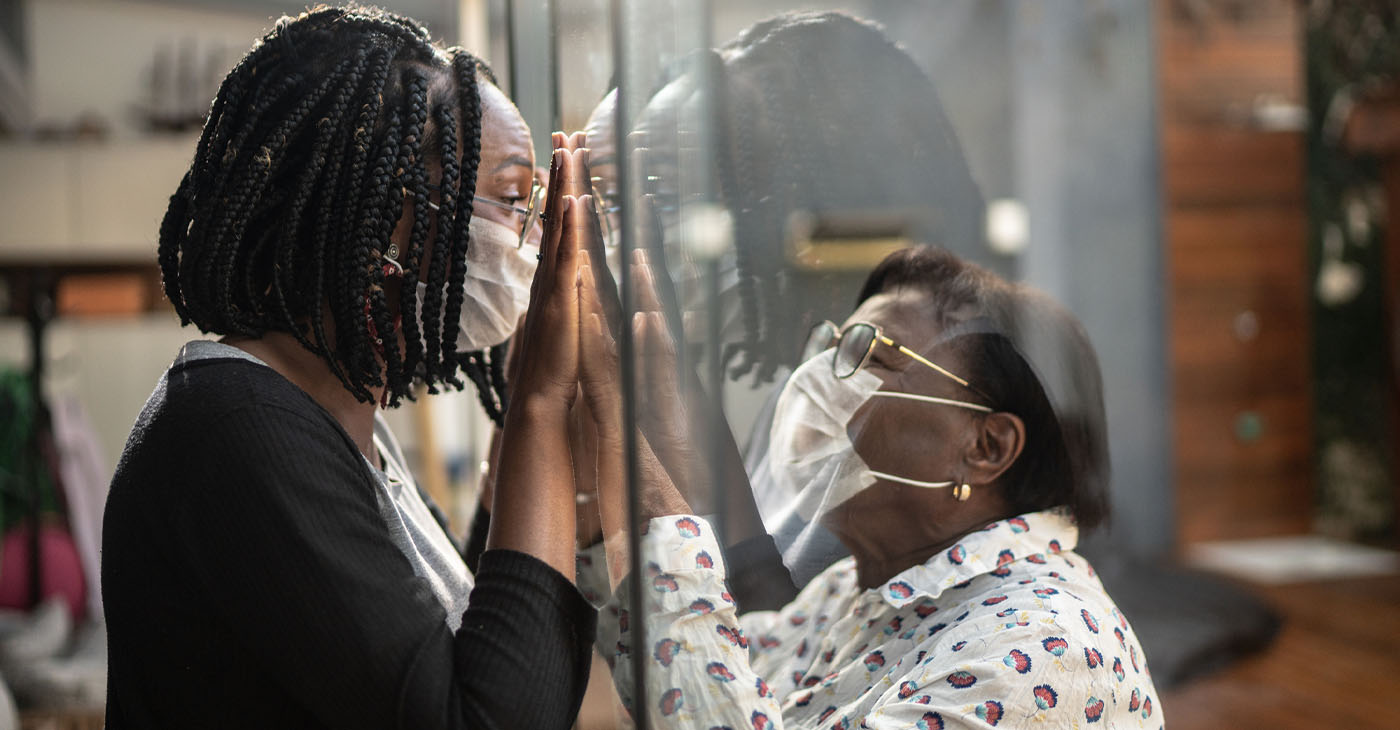
By Bo Tefu, California Black Media
California is experiencing a COVID-19 surge this summer, experts warn, as numbers of infections increased for the third month this year.
State public health authorities attribute the summer COVID surge to more infectious subvariants that have emerged as the coronavirus evolves.
Dr. Elizabeth Hudson, regional chief of infectious disease at Kaiser Permanente Southern California, stated that subvariants of COVID-19 called FLiRT increased in recent months, particularly one named KP.3.1.1 that has become the most common strain in the country.
Dr. Peter Chin-Hong, an infectious diseases expert at UC San Francisco, said that the subvariant KP.3.1.1 seems most adept at transmission.
“The subvariant is the one that people think will continue to take over, not only in the United States, but … around the world,” Chin-Hong said.
According to data estimates by the Centers for Disease Control and Prevention (CDC), the coronavirus in California’s wastewater has spiked for eight consecutive weeks. Hospitalizations and emergency room visits have also increased since the rise of the new subvariants. Over the last month, Los Angeles County experienced an average of 389 hospital patients per day that tested positive for the coronavirus. The FLiRT subvariants such as KP.3.1.1. Made up over 2% of coronavirus samples nationwide, an increase of more than 7% last month.
The majority of the people who tested positive for COVID-19 complained of a sore throat and a heavy cough. Risk factors that can increase the illness include age, underlying health issues, and vaccine dosage.
Health experts stated that the demand for the COVID-19 vaccine has increased in Northern California. However, people are having a hard time getting the vaccine due to the increasing number of cases.
Alameda County
Alameda County Supervisor Nate Miley Gives Small Business a $30,000 Boost
On Jan. 6, Alameda County Supervisor Nate Miley (D6) presented a $30,000 check to small business owner William “Bill” Owens, owner of Cascos Martial Arts Studio at 74th and MacArthur in Oakland. Miley, whose business has been facing financial challenges due to COVID Pandemic restrictions, says he was nearing bankruptcy. “This check will go a long way and is greatly appreciated,” he said.
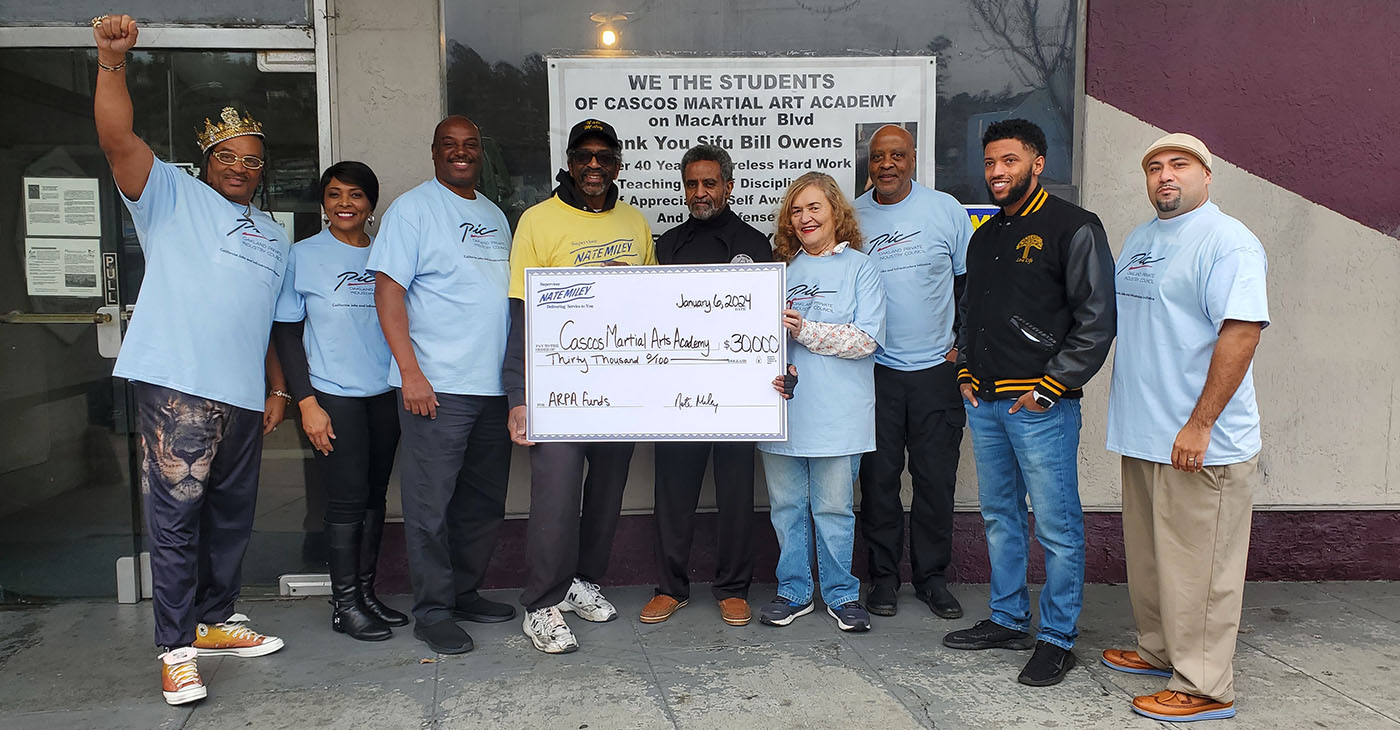
By Carla Thomas
On Jan. 6, Alameda County Supervisor Nate Miley (D6) presented a $30,000 check to small business owner William “Bill” Owens, owner of Cascos Martial Arts Studio at 74th and MacArthur in Oakland.
Miley, whose business has been facing financial challenges due to COVID Pandemic restrictions, says he was nearing bankruptcy. “This check will go a long way and is greatly appreciated,” he said.
For Miley, starting 2024 on a high note was important. “I can’t think of a better way to start the new year,” he said. “Small businesses are vital to our communities and when you help a committed business owner, you help a community. It’s an honor to add value by contributing to a small business that has trained so many young people, watched them grow up and have viable careers.”
OPIC Business Outreach Team Members Diane Lewis and Frank Smith celebrated the new collaboration with the martial arts studio.
“It’s always exciting to launch new programs,” said Lewis. “It’s encouraging to see Black men supporting one another and helping them rise to another level,” said Smith.
The check was presented to Owens along with the Oakland Private Equity Council (OPIC).
Pastor Raymond Lankford of the Oakland Community Church and president of the (OPIC) was also present.
“This is martial arts studio has been a big part of this community and helping support Mr. Owens is a win-win for the community,” said Lankford.
OPIC Board Member Kitty Epstein also praised Owens.
“It’s important to support this business and its contribution to the community,” said Epstein.
Cascos Martial Arts Studio has been in business for more than 50 years. Owens and his wife Mary have taught the community the art of self-defense together. “When COVID happened, we were hit with social distancing regulations in our small space,” explained Owens. “We went from having a couple hundred students to a few.”
After the check presentation, Owens invited attendees to see his training in action. For him, teaching the art of self-defense has included naming his moves and techniques after cultural icons like Martin Luther King, Jr. and other activists.
Owens says he bridged the innate rhythms and movements of African American culture with the techniques of Asian martial arts. However, upon traveling the world, Owens noticed many of the moves were less fluid.
“Often the moves are more frigid, and our influence has added more fluid movements,” said Owens as he moved, mimicking some boxing movements and fancy footwork.
“We want to ensure Owens is in business for years to come,” said Pastor Raymond Lankford, president of the Oakland Private Industry Council.
Owens also demonstrated how women and the elderly can protect themselves from theft, injury, or even being trafficked. 2022 statistics noted that of the 1500 people reported missing, over half were African American.
“We have to teach our young people these techniques. We can all support small businesses and expand services throughout the community,” added Owens who plans to add a mobile service to his business.
Activism
Business Owners Talk Future of Economic Development in Oakland at Downtown Event
The city of Oakland is taking steps to streamline permits for businesses to entice them to stay and bring new projects to the city. Additionally, the city is committing $200 million for affordable housing, which is “unprecedented in the city of Oakland” says Councilmember Nikki Fortunato-Bas, who was also at the event. “We have committed to supporting our community, supporting our local businesses and really showing that we can work together for safer communities,” Fortunato-Bas emphasized in an interview with the Post.
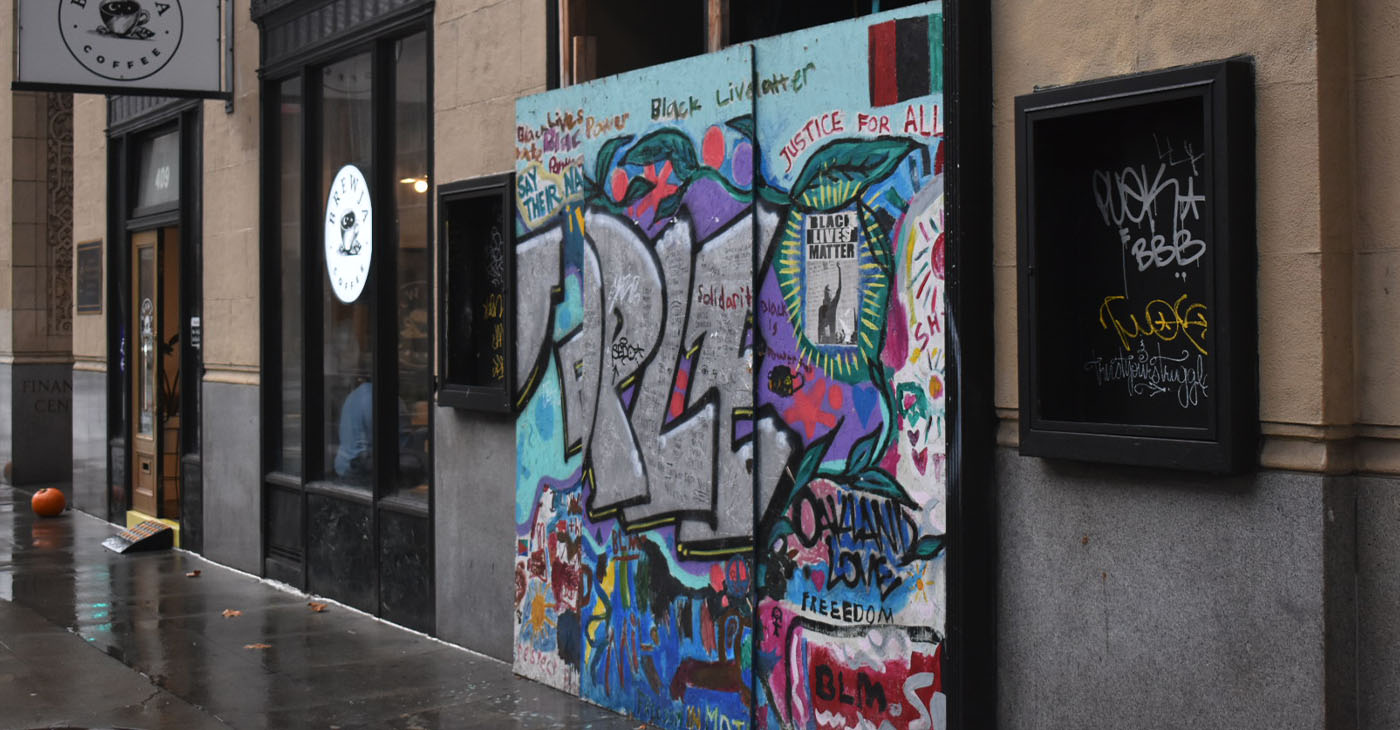
By Magaly Muñoz, Post Staff
Developers and business owners in the Bay Area came together for the “Oakland Structures” event hosted by San Francisco Business Times to discuss economic development projects in Oakland last Thursday.
Mayor Sheng Thao opened up the event as the keynote speaker, sharing her experiences from her first year in office and the measures her administration has taken to address the key issues plaguing the city.
Thao inherited the largest deficit Oakland has ever seen- $360 million- and came into her position as the effects of the COVID-19 pandemic were hitting the city hard. The once bustling city has faced difficulties as people transitioned to hybrid or work-from-home jobs, which has caused foot traffic to slow down and businesses to lose clientele.
“I refuse to stop until we get our businesses back up and running at full capacity, and make sure that people feel safe, not just safe in the commercial corridors, but safe everywhere,” Thao said.
Thao shared that the economic development in Oakland is slowly, but surely, growing as new companies bring their business to downtown. PG&E has recently been among the bigger corporations that’s settled in Oakland, bringing 7,000 jobs with them, which will not only open up potential opportunities for Oaklanders, but also increase foot traffic for businesses in town.
Thao acknowledged several initiatives that have already been implemented to give the city a boost, including Five After Five, a cost-effective parking program; Activate Oakland grants, which gives businesses up to $15,000 to host events that will bring the community to downtown; and the film initiative to encourage filmmakers and TV shows to shoot their projects in Oakland.
The city of Oakland is taking steps to streamline permits for businesses to entice them to stay and bring new projects to the city. Additionally, the city is committing $200 million for affordable housing, which is “unprecedented in the city of Oakland” says Councilmember Nikki Fortunato-Bas, who was also at the event.
“We have committed to supporting our community, supporting our local businesses and really showing that we can work together for safer communities,” Fortunato-Bas emphasized in an interview with the Post.
As the holiday season approaches, Fortunato-Bas urges the community to shop and dine locally, all the way from the Fruitvale to Grand Lake, areas she represents, as this will help boost and support these businesses.
During a panel with investors and business owners who have new projects breaking ground as early as 2024, a pressing question emerged among the attendees and panelists was “Is Oakland the right city to maintain and bring in businesses?”
Real estate developer Riaz Taplin, CEO and founder of Riaz Capital, said that people need to want to come back to the office and revitalize the commercial corridors of the city, but also that businesses need the support of the government sector to thrive.
He feels as though new entrepreneurs who are starting out in Oakland today do not have the advantage that many, like himself, did pre-COVID, where they could just walk into a city office and be helped on how to get the right permits because everything and everyone was so accessible.
More people would feel enticed to come back downtown if they felt that they were safe, so public safety needs to be high on the list of priorities for the city, Taplin said, emphasizing issues such as litter, vandalized business fronts and homeless encampments.
“Something needs to happen to make Broadway a place people want to go,” Taplin said after sharing a story about downtown Alameda being the busiest area with the most foot traffic out of Oakland and San Francisco.
Another panelist, Oakland Roots president Lindsay Barenz, shared that although Oakland is struggling to keep sports teams, the time is now to invest in those projects to keep the sports culture in the city.
“A sports team can be a critical component to that [a place where people enjoy living],” Barenz said.
She emphasized that the Oakland Roots see themselves as significant to the culture of Oakland as institutions like the zoo, museum, and Fairyland. She believes that the morale boost that a sports team can provide is what Oakland needs.
When asked to give a headline of what is to come in Oakland in the next five to 20 years, Taplin said, “Clean it and they will come.”
-

 Activism3 weeks ago
Activism3 weeks agoBooks for Ghana
-

 Arts and Culture4 weeks ago
Arts and Culture4 weeks agoPromise Marks Performs Songs of Etta James in One-Woman Show, “A Sunday Kind of Love” at the Black Repertory Theater in Berkeley
-

 Bay Area3 weeks ago
Bay Area3 weeks agoGlydways Breaking Ground on 14-Acre Demonstration Facility at Hilltop Mall
-

 Activism4 weeks ago
Activism4 weeks ago‘Donald Trump Is Not a God:’ Rep. Bennie Thompson Blasts Trump’s Call to Jail Him
-

 Activism3 weeks ago
Activism3 weeks agoLiving His Legacy: The Late Oscar Wright’s “Village” Vows to Inherit Activist’s Commitment to Education
-

 Arts and Culture3 weeks ago
Arts and Culture3 weeks agoIn ‘Affrilachia: Testimonies,’ Puts Blacks in Appalacia on the Map
-

 Alameda County3 weeks ago
Alameda County3 weeks agoAC Transit Holiday Bus Offering Free Rides Since 1963
-

 #NNPA BlackPress4 weeks ago
#NNPA BlackPress4 weeks agoCalifornia, Districts Try to Recruit and Retain Black Teachers; Advocates Say More Should Be Done




